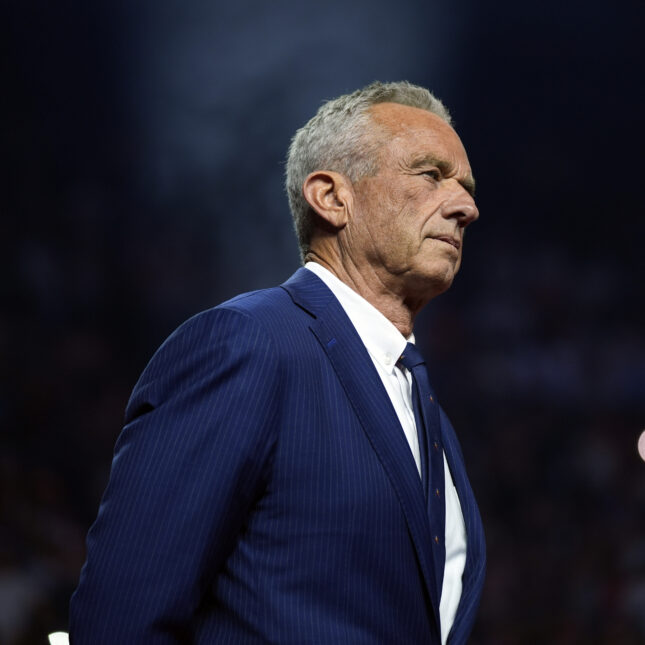Robert F. Kennedy Jr remains a controversial figure, particularly with respect to public health policy. Known well for his stance against vaccines, he raises concern for many as his opposition could translate to reduced funding for research on cures and treatments for fatal diseases. Despite these concerns, he has become a nominee for the Department of Health and Human Services (HHS) head. This possible confirmation has added to the unease as the HHS is tasked with enhancing the nation’s health, safety, and well-being.
President Donald Trump’s indication of choosing Kennedy to steer the helm of HHS has raised many eyebrows. His apparent disregard for evidence-based and scientific views has raised fears of a potential revival of childhood diseases such as polio and measles, among others. This move does not bode well for the people of Iowa, as Kennedy’s approach threatens their lives and wellbeing.
Kennedy’s contradictions do not stop with his negative view of life-saving vaccines. He has openly articulated his disbelief in the major threat posed by infectious diseases to human health. Moreover, he made commitments to draw a stop to the funding of research geared towards finding cures and treatments. Such steps could sabotage public health institutions that protect Americans from infectious diseases and food contamination.
An impediment to welfare programs including Medicare and Medicaid might be inevitable under his leadership. The public health infrastructure and funding that guarantee safety against infectious diseases and offers support during an outbreak could be greatly threatened. Past instances have demonstrated that Kennedy’s opinions and actions against vaccinations can have dangerous ramifications.
An example of such destructive consequences was the 2019 measles outbreak in Samoa following Kennedy’s visit and interaction with the country’s prime minister and other notable figures. Kennedy’s propagation of misinformation and severe anti-vaccine rhetoric furthered the fear and distrust of vaccines among the public. As a result, 83 individuals lost their lives in the outbreak, most of them being infants and children.
The post-visit uproar in Samoa highlighting the arising health concerns can possibly serve as a foreshadowing of the future under his leadership. With HHS holding responsibilities for medication approval, vaccine management, funding critical research, and disaster response coordination, a Kennedy-led HHS might put American lives at risk.
As we look to the leaders of HHS, we expect a commitment to science, vaccine support, and a focus on healthcare cost reduction and protection. However, the impression Kennedy projects seems to dismiss experts and scientific understanding, continuing instead to push potentially harmful misinformation. As a result, every household in Iowa and the nation might find themselves under a looming threat.
Looking ahead towards Iowa’s 2026 celebrations of the United States’ 250th birthday, discourse has begun around planning a grand celebration at the best State fair, the Iowa State Fair. Meanwhile, senators Chuck Grassley and Joni Ernst appear to align with President Donald Trump’s controversial pardon of over 1500 individuals involved in the Capitol attack four years ago.
Comparisons are being drawn between Hunter Biden and his family who have neither vandalized the Capitol nor attempted to overturn an election outcome due to dissatisfaction with the results. Nor those whom Biden pardoned in order to safeguard from Trump’s threat of retribution. A few years ago, Ernst condemned such actions as ‘heinous’ and advocated for the most severe prosecution of the law.
Fast forward to now, and a considerable change in narrative is observed. Despite making promises in her capacity as member of the Senate Judiciary Committee, actions to fulfill such promises have fallen short. The gap between professing and practicing has left a mark on their image as grassroot representatives leading to their current perception as political hacks.
Imagining a scenario where a group of enraged citizens invade the Iowa Capitol, threatened our legislators, governor, lieutenant governor, and injured law enforcement officials paints a harsh picture. Can forgiveness for those who harmed our police officers be justifiably granted in this case? This is a critical question to be confronted by President Donald Trump who publicly champions police forces, but paradoxically pardons those guilty of harming them.
State Rep. Steve Holt from Denison has championed President Donald Trump’s and the Iowa Republicans’ agenda as grounded in common sense. However, others argue that it’s not sensible when those who caused harm and incurred fatalities on security personnel are pardoned without being held accountable in line with restorative justice practices.
The plea for Blue Lives Matter from the Republicans came out loudly when African Americans took to the streets to protest. Yet the same concern seems unlacking with the right’s leader pardoning those involved in the January 6 riot, directly contradicting their previous stance. As a popular story in the Register about a push to ban phones while driving comes to light, I wonder – who might be against it, and why?


